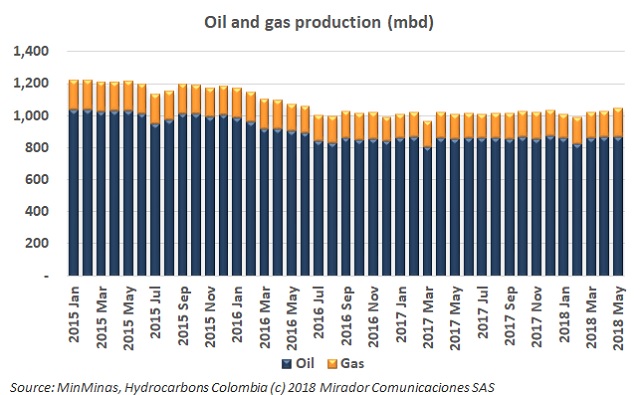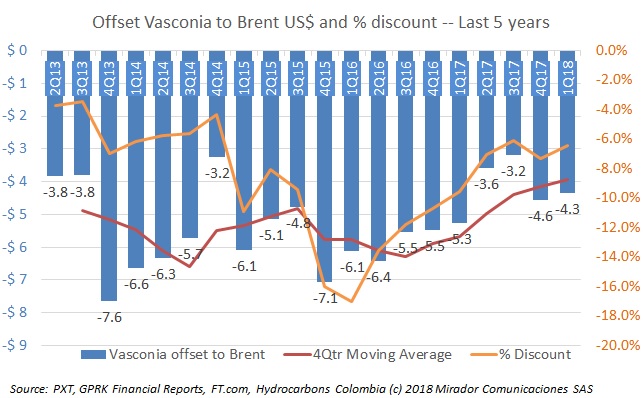The National Development Plan 2014-2018 contemplated large infrastructure projects and the Tumaco fuel terminal was one of the main ones. The southwest of the country benefits the most from this new terminal.

The country showed a decrease in its economic growth in 2017, but the recovery of oil prices has generated positive expectations for this year. Juan Manuel Santos, President of Colombia, could end his administration with signs of economic recovery.

It is the end of the second quarter (already?) so we decided to update our favorite charts about oil prices movements, including futures.

Oil prices have increased in recent months, improving the sector’s prospects and probably the Colombian State’s income in the coming years. However, this behavior has also had some impacts on the country’s economy, especially in gasoline prices and other key metrics. Colombia’s Central Bank (Banrep) talked about this.

BP recently published its annual statistical summary of the global energy market and we thought it might be interesting to look at a few selected charts. The focus was country-by-country comparisons and, by looking at energy consumption broadly, we chose some variables that might be a bit different.
The Ministry of Finance (MinHacienda) updated the Medium Term Fiscal Framework to reflect the recovery of oil prices. Expectations about oil exports are positive for the short term.
Low oil prices of are a thing of the past (for now at least) and the sector is experiencing a new era with better prospects, benefiting the country’s economy and finances. Alberto Bernal, Expert in Economics, spoke about effects of high oil prices on the country.

It has been many months since we updated our chart of showing the discount of Vasconia blend to Brent. Vasconia is the country’s most emblematic crude.

The Ministry of Mines and Energy (MinMinas) announced fuel prices for June this year. As expected, these increased and the entity explained the reasons for the new rise.
US ethanol imports totaled 27% of demand in February causing inventories by local producers to use almost all of their storage capacity. Industry association FedeBiocombustibles says American production has a 30% government subsidy and they cannot compete.